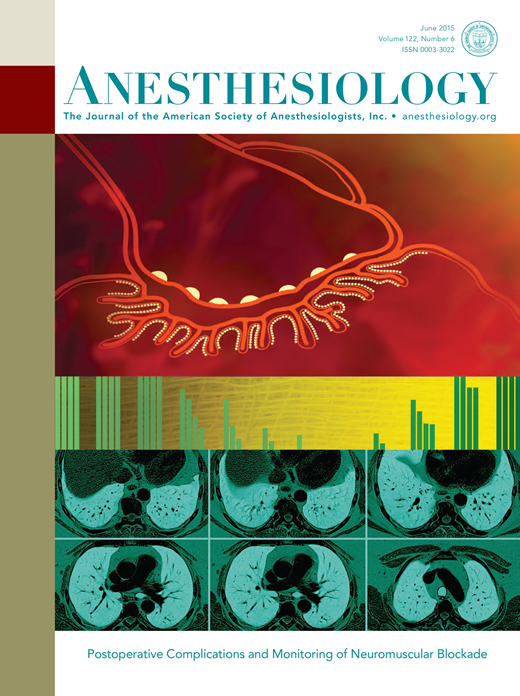开发儿科康复质量量表(PedSQoR)。
IF 9.1
1区 医学
Q1 ANESTHESIOLOGY
引用次数: 0
摘要
背景:测量患者康复质量至关重要,临床调查和质量改进需要可靠的以患者为中心的结果指标。目前,缺乏衡量儿科患者康复质量的评估工具。本研究旨在建立一套评估儿科患者康复质量的量表。方法采用混合方法调查模型,通过两种互补的方法实现项目生成。首先,对文献进行了全面的回顾,确定了评估儿童康复相关终点的工具和问题。问题被分类,然后由专家德尔福小组评估,确定最重要的领域和项目被包括在内。同时,与患者及其家属进行半结构化访谈,以确定与患者及其家属重要的康复相关主题。由此产生的试点问卷被用于美国和澳大利亚的择期手术患者及其家属。结果文献检索共鉴定出41种工具,包含216个与康复相关的问题。经过第一轮德尔菲后,项目列表减少到91个问题,第二轮后减少到50个问题。在半结构化访谈中确定的主题与专家小组认为重要的领域一致。在术后多个时间点对1162名患儿进行50项问卷调查。项目减少和因素分析产生了20个项目的儿科康复质量量表(PedSQoR),该量表评估了与身体和心理康复相关的领域。结论PedSQoR量表是一份包含20个项目的问卷,旨在全面反映儿童手术和麻醉后的身体、情绪和心理恢复情况。它是在消费者参与和以患者为中心的强烈关注下开发和验证的。一旦建立了进一步的验证,它有望成为儿科围手术期试验和质量改进项目的标准化终点。本文章由计算机程序翻译,如有差异,请以英文原文为准。
Development of the Pediatric Scale for Quality of Recovery (PedSQoR).
BACKGROUND
Measuring the quality of a patient's recovery is vital, and reliable patient-centered outcome metrics are needed for clinical investigations and quality improvement. Currently, assessment tools to measure quality of recovery in pediatric patients are lacking. This study aimed to develop a scale to assess the quality of recovery (QoR) construct in pediatric patients.
METHODS
Using a mixed-methods investigative model, item generation was achieved using two complementary approaches. First, a comprehensive review of the literature identified tools and questions that assessed the endpoints relevant to recovery in children. Questions were categorized and then assessed by an expert Delphi panel who determined the most significant domains and items to be included. Concurrently, semi-structured interviews were conducted with patients and their families to identify themes related to recovery that were important to patients and families. The resulting pilot questionnaire was administered to patients and their families presenting for elective surgery in the US and Australia.
RESULTS
The literature search identified 41 instruments, comprising 216 questions relevant to recovery. After the initial Delphi round, the item list was reduced to 91 questions, and then to 50 questions after the second round. The themes identified in the semi-structured interviews aligned with domains considered important by a panel of experts. A 50-item questionnaire was administered to 1162 children, at multiple time points post-surgery. Item reduction and factor analysis resulted in the 20-item Pediatric Scale for Quality of Recovery (PedSQoR) that assesses the domains relevant to physical and psychological recovery.
CONCLUSIONS
The PedSQoR scale is a 20-item questionnaire designed to provide a holistic representation of a child's physical, emotional, and psychological recovery after surgery and anesthesia. It was developed and validated with consumer involvement and a strong patient-centered focus. Once further validation has been established, it is expected to become a standardized endpoint in pediatric perioperative trials and quality improvement projects.
求助全文
通过发布文献求助,成功后即可免费获取论文全文。
去求助
来源期刊

Anesthesiology
医学-麻醉学
CiteScore
10.40
自引率
5.70%
发文量
542
审稿时长
3-6 weeks
期刊介绍:
With its establishment in 1940, Anesthesiology has emerged as a prominent leader in the field of anesthesiology, encompassing perioperative, critical care, and pain medicine. As the esteemed journal of the American Society of Anesthesiologists, Anesthesiology operates independently with full editorial freedom. Its distinguished Editorial Board, comprising renowned professionals from across the globe, drives the advancement of the specialty by presenting innovative research through immediate open access to select articles and granting free access to all published articles after a six-month period. Furthermore, Anesthesiology actively promotes groundbreaking studies through an influential press release program. The journal's unwavering commitment lies in the dissemination of exemplary work that enhances clinical practice and revolutionizes the practice of medicine within our discipline.
 求助内容:
求助内容: 应助结果提醒方式:
应助结果提醒方式:


